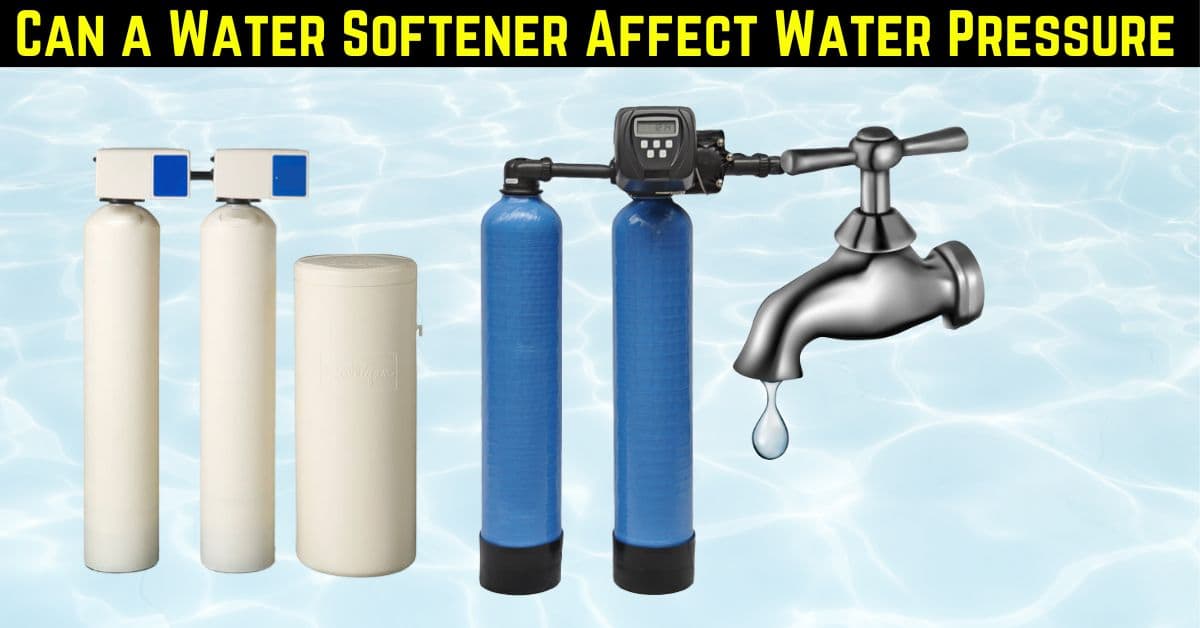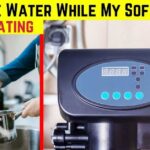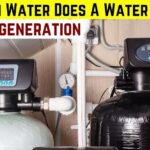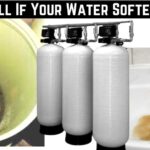If you’ve noticed a sudden effect in water pressure, check your water softener system.
A softener can affect the pressure of the water from your taps.
Here’s what you need to know about how a softener can impact your home’s high water pressure and what you can do if it’s too low.
Why Low Pressure After Installing Water Softener Resin Filter?
It’s common to affect pressure to drop after installing a softener water filter.
This is usually because your soft water filter reduces the overall flow of water into your home.
While this may be frustrating, it’s important to remember that your water filter is working as intended and helping to improve your water quality.
If you’re concerned about the decrease in pressure, you can do a few things to help alleviate the problem.
First, try adjusting the settings on your filter. This may increase the water flow and improve your sustained pressure.
Additionally, you can check to see if your home’s main water supply is experiencing any issues. If there is a problem with your home’s water supply, it may be affecting your pressure.
Finally, you can contact a professional to help you troubleshoot the problem and find a solution that works for you.
Water Pressure Regulators Can Create Problems
If your home has poor pressure, it could be due to a problem with your different water pressure regulator.
A pressure regulator is a valve that controls the amount of water flowing through your pipes. If the regulator is not working correctly, it can cause high water pressure issues.
Several things can cause a broken water pressure valve regulator to fail. The most common problem is a buildup of sediment in the valve.
Sediment can cause the valve to become clogged and not work correctly. Another common problem is a broken diaphragm.
A broken diaphragm will not allow the valve to open or close properly, which will also cause low pressure.
Low Water Pressure From Faucets And Fixtures
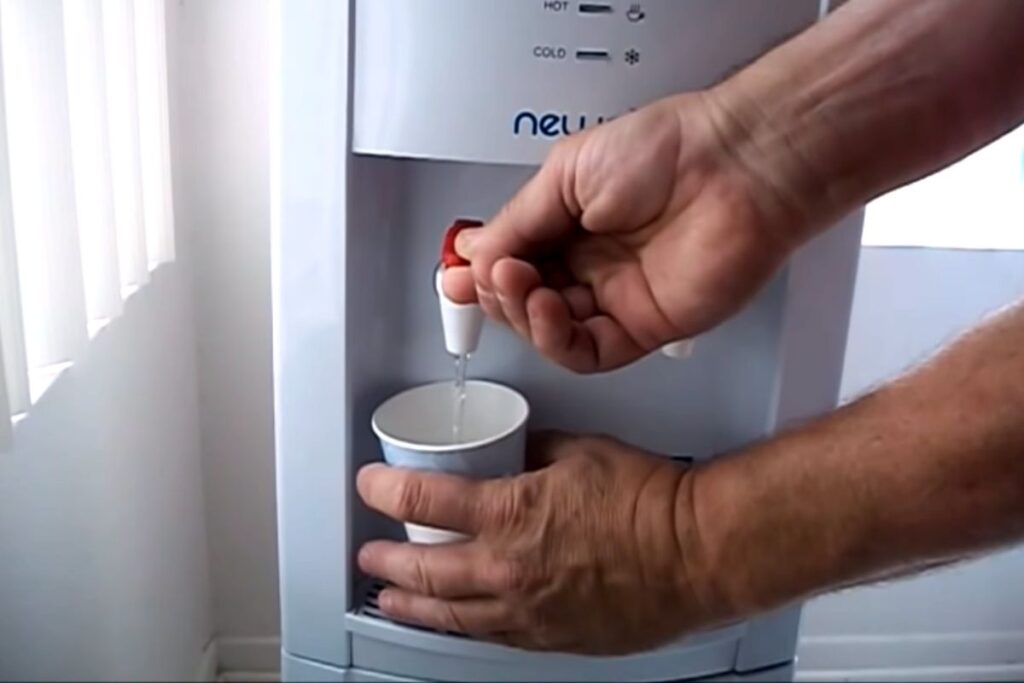
Causes
Water pressure that’s too low can be annoying and even cause severe problems in your home. But what causes low pressure, and how can you fix it? We’ve got the answers.
There are a few different reasons why your pressure might be low. One possibility is that there’s a problem with your well pump.
If the pump isn’t working correctly, it can cause a drop in water pressure.
Another possibility is a leak in one of your home’s pipes. Even a tiny leak can lead to a loss of pressure.
And if the leak is in a pipe that supplies water to your home’s fixtures, you’ll likely notice a decrease in pressure at all fixtures that use that pipe.
If you have low pressure only when you turn on more than one fixture at a time, it’s probably due to the size of your home’s water supply lines.
The supply lines in homes with older plumbing are often made of smaller-diameter pipes.
When more than one fixture is in use, the water flowing through the smaller-diameter pipes can’t keep up with demand, and that causes pressure to drop.
Solutions
Luckily, there are a few things you can do to fix low pressure in your home. If the problem is due to a leak, check your home’s pipes for leaks.
If you find a leak, have it repaired as soon as possible?
Suppose you don’t see any leak evidence and have low water pressure only when multiple fixtures are used. The problem is probably due to the size of your home’s water supply lines.
You can solve that problem by having a plumber install larger-diameter pipes.
If you have low pressure even when only one fixture is in use, the problem is probably due to your well pump.
You’ll need to check your deep well pump to see if it needs to be repaired or replaced.
Clogged Water Heater Piping Can Reduce Water Pressure
If your water heater piping is clogged, it can reduce the pressure that flows through your pipes.
This can be a significant problem if you rely on solid pressure for tasks like showering or washing dishes.
You can tell if your water heater piping is clogged in a few ways.
If you notice a sudden drop in water pressure or if your water heater starts making strange noises, it’s possible that your piping is blocked.
When you think your water heater piping might be clogged, the best action is to call a plumber.
They can quickly diagnose the problem and clear out any blockages. This will restore normal pressure to your home.
Corroded Plumbing Causes Low Water Pressure
If your home has low pressure, it could be due to corroded plumbing.
Over time, the pipes in your home can develop a buildup of rust and other mineral deposits, restricting the water flow rate and causing low pressure.
In some cases, the corrosion may be severe enough to cause a leak in the pipe.
In some cases, simply cleaning the pipes can resolve the issue. However, if the corrosion is severe, it may be necessary to replace the pipes.
If you’re experiencing low water pressure, don’t ignore it. Corroded plumbing can lead to severe problems, so it’s essential to have it inspected by a professional as soon as possible.
Mismatch in Water Softener Size
This can cause low pressure as the small water softener resin tank will use up all the water in the home trying to soften it. Fixtures’ lack of water available to be used leads to low pressure.
What Are The Causes and Solutions Of Low Well Water Pressure
Low pressure can make it challenging to shower, wash dishes, or even brush teeth. In some cases, it can also lead to costly repairs.
There are several possible causes of low well pressure. The most common include:
- A drop in the water level in your well
- Clogged or damaged pipes
- A problem with the pump or other equipment
Fortunately, you can do a few things to solve the problem. If you have a clogged pipe, you can use a plunger or a snake to clear the blockage.
If the problem is with your pump, you may need to have it repaired or replaced. In some cases, you may need to drill a new well.
If you cannot find the cause of the main problem, it’s best to contact a water professional. They can diagnose the issue and recommend the best course of action.
Low Water Pressure Caused By Municipal Water Valve Issues
If you’re experiencing low pressure in your home, it could be caused by an issue with your municipal water supply.
The municipal water supply is responsible for regulating water flow into your home. If they’re not working correctly, it can lead to decreased pressure.
If you suspect that your low pressure is due to a problem with your shut-off valve, you can do a few things to troubleshoot the issue.
First, check to see if the pressure in your home is low across all fixtures or if it’s just an issue with one faucet or showerhead.
If it’s only affecting one fixture, there could be an issue with that fixture itself and not the municipal closed water supply valve.
You can test this by turning on all the faucets in your home at once to see if the water pressure decreases. If it does, you know the issue is with the municipal water control valve.
How to Increase Water Pressure after Water Softener?
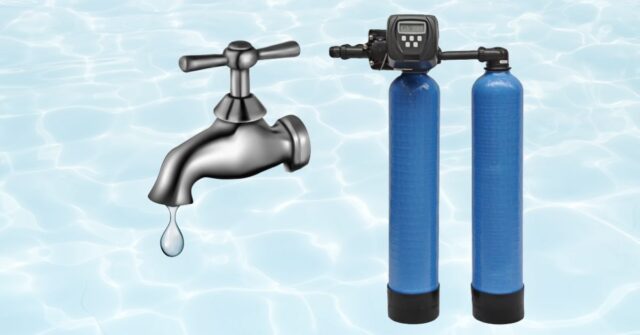
If you have recently installed an outdoor water softener in your home, it may affect your water pressure.
This is because the softener takes up space in your water pipes, decreasing the overall volume of water flowing through them.
Fortunately, you can do a few things to increase the pressure in your home after a water softener has been incorrectly installed.
- Check the inlet valve on the softener. The inlet valve is responsible for bringing water into the unit. If it is not working correctly, it can cause a decrease in pressure. If the inlet valve is not fully open, try opening it to see if that increases the pressure.
- Check the brine tank. The brine tank is where stores the salt that is used to soften the community water. If the brine tank is too full, it can cause a decrease in pressure. Try emptying some fresh salt from the brine tank to see if that increases the pressure.
- Check the outgoing valve on the water system operations. The outgoing valve sends softened water out of the larger unit. If it is not working correctly, it can cause a decrease in pressure. If the outgoing brass valve is not fully open, try opening it to see if that increases the pressure.
- Check the filters. The faucet filters in the softener tank can become clogged over time, which can cause a decrease in pressure. Try cleaning or replacing the sediment filters to see if that increases the pressure.
- Check for leaks. Leaks in the plumbing issues can cause a decrease in water pressure. Check all the fittings and pipe corrosion for hidden leaks, and repair any you find.
If you have tried all these things and are still trying to get enough pressure, you may need to have professional plumbing fixtures look at your system.
Myth or Fact: The Water Softener Causes Low Water Pressure
If you have a clogged water softener system in your home, it may affect your pressure seems lower than its water usage.
You may be wondering if the softener is to blame.
The short answer is that a softener can indeed cause low pressure. However, a few factors must be considered before concluding that your water softener is the root of the problem.
First, it’s essential to understand how a softener works. Softeners use an ion exchange process to remove hardness minerals from your water.
The magnesium and calcium ions in hard water are exchanged for sodium or potassium ions.
The water becomes softer as the hard minerals are removed from the water. This can lead to lower pressure because the water is less dense than before.
Another factor to consider is that most softeners will regenerate process regularly.
During regeneration, the capacity of the water softener will flush out the hard minerals that have been removed from the city water.
This process can also lead to lower pressure, requiring a lot of chlorinated city water to flush out the minerals.
If you’re concerned about low pressure caused by your softener, you can do a few things.
First, you can check the settings on your softener and ensure it’s set to regenerate when you’re not using as much water.
You can also check for leaks in the regeneration process and ensure all bypass valves are open.
Does It Take Long To Eliminate Scale Buildup By Using Softened Water?
The answer to this question depends on a few factors, including the type of apartment water softener you have, the hardness of your water, and how much scale has built up in your pipes.
Generally speaking, it will take some time to remove the scale when you switch to softened water. However, the process should go faster if you have a high-quality softener.
Removing all the scales from your pipes may take longer if you have hard water.
Ultimately, following the manufacturer’s instructions for your specific softener is essential to ensure that you remove all the scales from your pipes.
It’s also important to note that switching to softened water may only partially eliminate scale buildup in your pipes.
However, it will significantly reduce the scale that builds up over time.
So, while removing the existing scale when you switch to softened water may take some time, you can expect less scale buildup in the future.
You can also do some effective steps to resolve low water pressure, explained in this video:
Conclusion (Can a Water Softener Affect Water Pressure)
In conclusion, the size and type of your home will ultimately dictate the kind of softener you’ll need to ensure optimal water pressure.
If you have any questions or concerns regarding your pressure, please don’t hesitate to contact a certified plumbing professional who can help you determine the best course of action for your home.
Thank you for reading! This article helped you understand how a water softener can affect the pressure in your home.
FAQs
How do I increase water pressure after the water softener?
Suppose you have noticed a decrease in water pressure after installing a water softener. In that case, there are several ways to increase it.
Ensure all valves are open and there are no loose connections. A pressure boost is necessary if the valves and connections appear in good condition.
You can increase water pressure by installing a booster pump or increasing the water flow rate.
In addition to installing a pump, you can increase water pressure by replacing the existing pipes with larger-diameter pipes. This will allow more water to flow through them and increase pressure.
How can you tell if your water softener is clogged?
A water softener can become clogged, leading to decreased water pressure and poor performance. To determine if your water softener is clogged, you can look for signs such as reduced flow rate, increased hardness levels in the water, or a buildup of sediment in the brine tank.
Do water softeners affect flow rate?
Yes, water softeners can affect the flow rate. The resin beads within the system absorb the hard minerals from the water and reduce their flow rate. The higher the hardness levels in your water, the more resin beads are needed to treat it, which means more water needs to be used to increase the flow rate again.
Why is my water still hard with a water softener?
Despite installing a water softener, your water may still seem hard or have high levels of minerals. This can be caused by several factors, such as an undersized unit, wrong resin beads used, incorrect regeneration settings, or a malfunctioning system. Suppose your water is still hard with a water softener. In that case, checking these elements and ensuring they are adjusted correctly is recommended.
